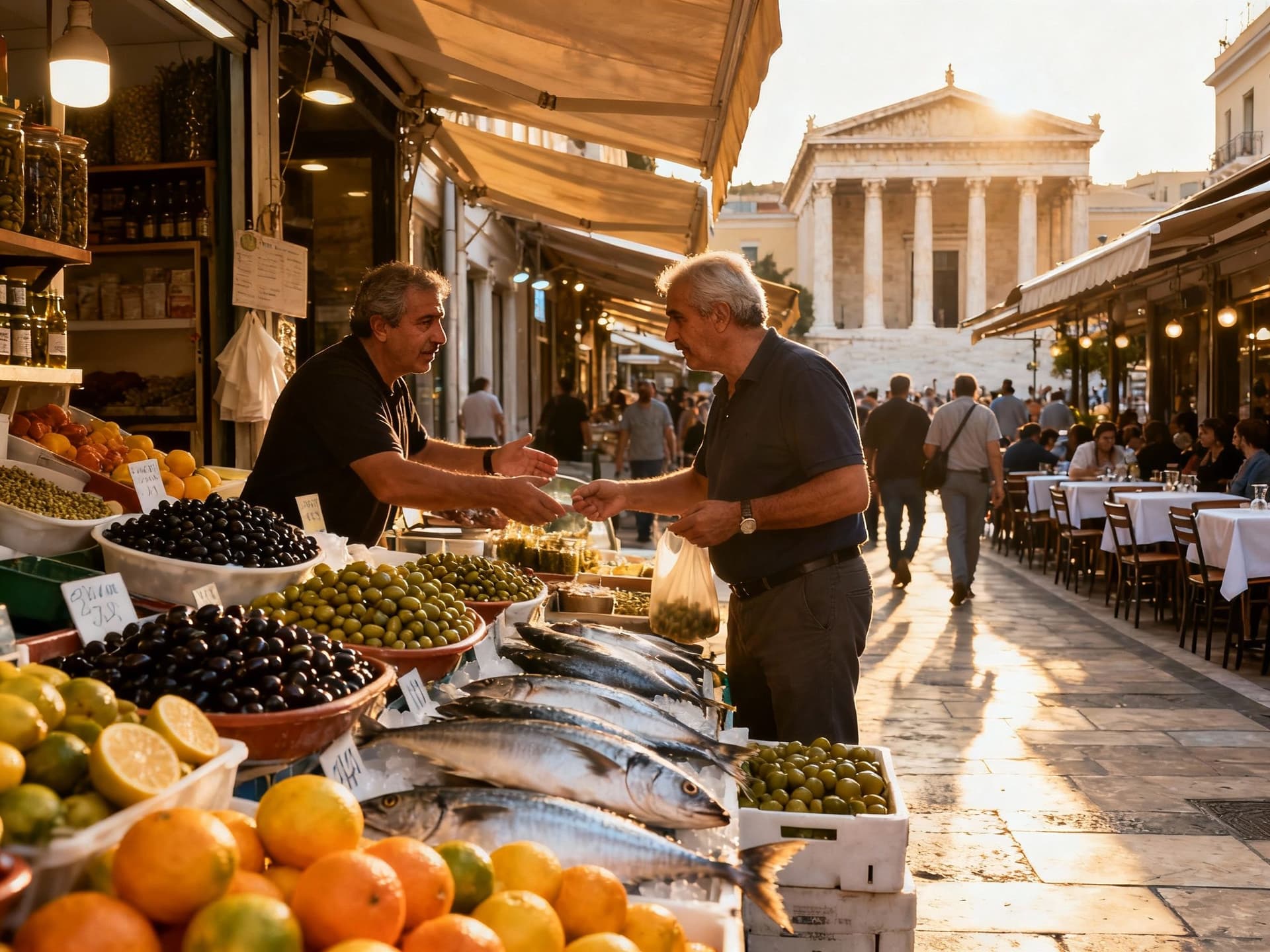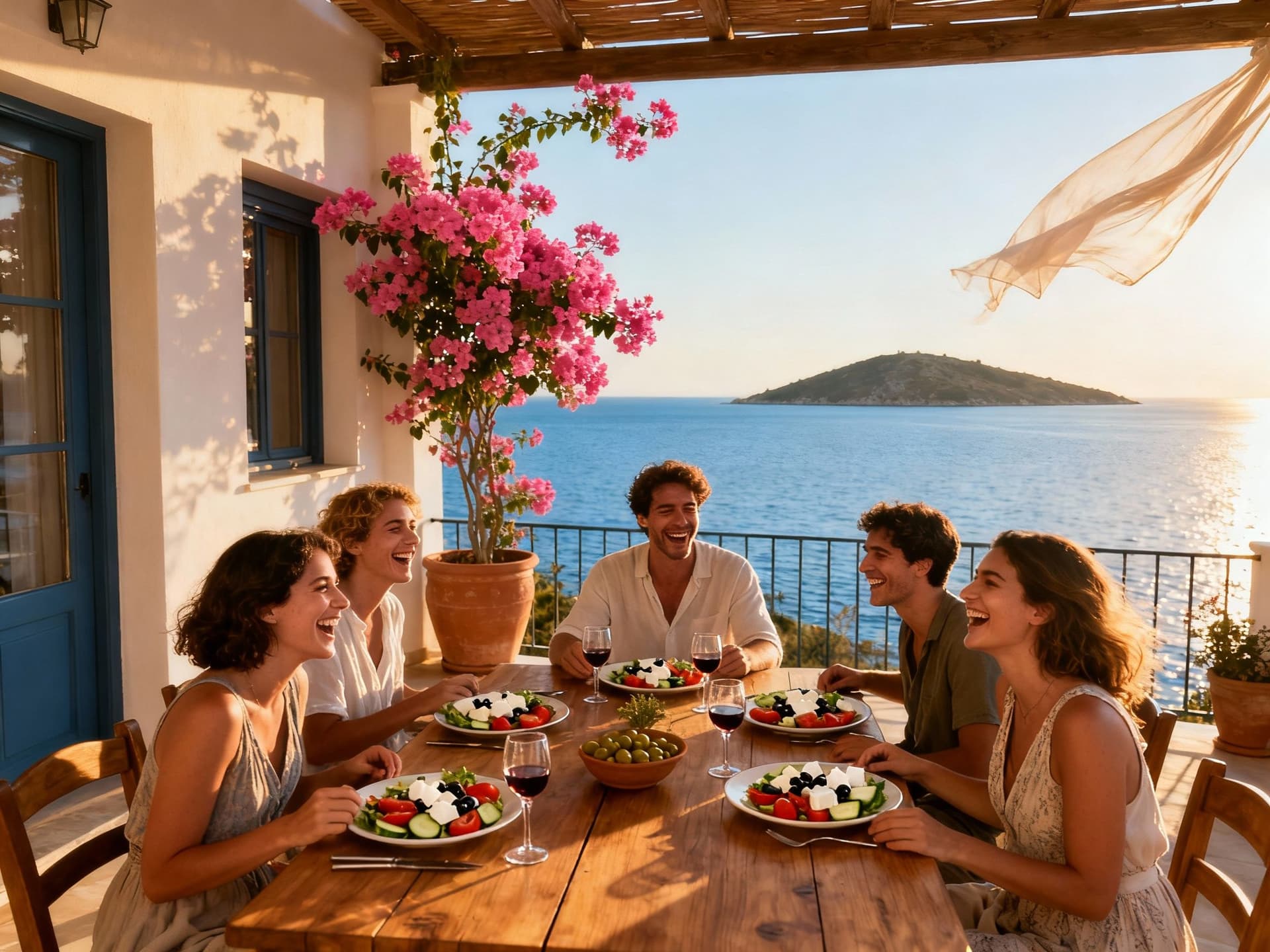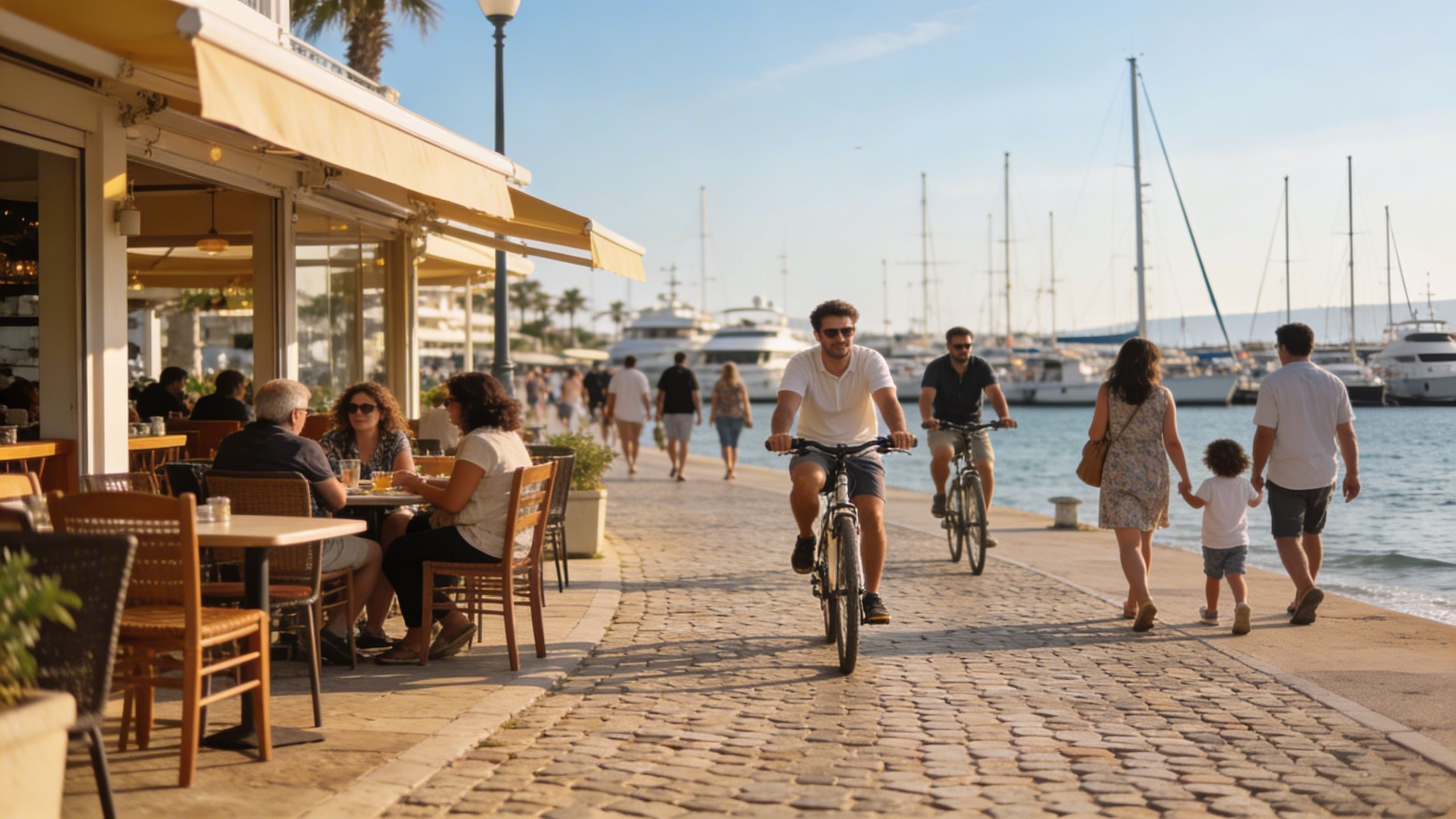Greece: Life, Market Shifts and What Matters Now
Greece blends seaside rituals, markets and culture — but 2024–25 rule changes (Golden Visa, short‑let limits) reshaped demand. Pair lifestyle choices with legal, market checks.
Imagine stepping out for morning espresso on Dionysiou Areopagitou in Athens, then catching a late‑afternoon ferry to a wind‑scoured Cycladic cove — life in Greece folds daily rituals, sea air and history into one. That sensory mix is why international buyers dream here: neighbourhood cafés hum, local markets brim with produce, and every town keeps a summer rhythm that reshapes by season. But the market behind that dream has changed rapidly: price growth, tighter Golden‑Visa rules, and new short‑let restrictions now shape where and how foreigners buy. This guide pairs the life you’ll live with the market realities you should know before signing on the dotted line.
Living the Greece lifestyle

Picture weekday mornings in Athens’ Koukaki with delivery carts rolling past neoclassical facades, or evenings on Corfu’s Liston watching locals sip ouzo. Greece’s life is outdoor: cafés, markets and waterfront promenades set the tempo, while festivals and Orthodox holidays punctuate the year. Tourism is still a dominant force — Greece welcomed tens of millions of visitors in recent years — which means coastal towns bustle seasonally but quiet down in winter. Knowing this rhythm helps you choose a property that behaves like you want it to: holiday rental engine, year‑round home, or a hybrid.
Athens & Attica: ancient fabric, modern life
Athens now feels less one city and more many: Kolonaki’s quieter terraces and high‑end shops, Koukaki’s café culture and walkable lanes, Glyfada’s seaside boulevards and marina life. Streets like Ermou and Dionysiou Areopagitou connect museum days with lively evenings and make daily life a blend of convenience and culture. For buyers who want access to international schools, restaurants and healthcare while keeping a distinctly Greek pace, Attica offers a range of neighbourhood characters within 30–40 minutes of each other by car or tram.
Islands & coasts: summer spectacle, off‑season truth
Mykonos and Santorini are compact theatre: peak summers, short‑term rental demand and steep prices that spike seasonally. By contrast islands such as Naxos, Paros and parts of Crete offer broader year‑round communities where local commerce persists beyond July and August. Recent market analysis shows strong price increases for new builds and supply constraints — an important reality if you expect a steady rental income or long‑term capital growth. Choose islands with infrastructure and a community rather than only tourist‑grade attractions to avoid the seasonal boom‑bust.
- Athens terraces, neighborhood cafés, and late‑night souvlaki stands
- Kolonaki and Koukaki for walkable urban life and cultural access
- Naxos, Paros or Crete for year‑round island communities
- Gulf beaches and marine activities around Halkidiki and the Peloponnese
Making the move: practical considerations

The romance of a sunlit terrace meets legal and market mechanics. Since 2024–25 Greece restructured investor residency rules and tightened short‑term rental oversight, so your purchase strategy must respond to new thresholds and use restrictions. Rather than treat the Golden‑Visa route as an automatic shortcut, treat it as one variable among many — fiscal changes alter where foreign buyers look, and they shift demand (and prices) toward permitted regions. Work with advisers who combine lifestyle knowledge with up‑to‑date regulatory intelligence.
Property styles and how they match your life
Whitewashed Cycladic houses offer sun‑filled terraces and close community life but can demand costly restorations and seismic upgrades. New‑build developments in Athens and Thessaloniki give you modern insulation, lifts and warranties, which suits families and year‑round living. Rural stone houses and Peloponnese villas provide space and gardens but expect added running costs for heating and water in cooler months. Match the property type to how you live: entertaining terraces need easy access and storage; winter homes need heating efficiency and year‑round services.
Work with local experts who know the life, not just listings
- Choose agents and lawyers who live in the neighbourhoods you like. They’ll understand micro‑seasonality, municipal rules on short lets and the practicalities of utilities and local cadastral records. Ask your agent for comparables that show seasonality and rental history rather than single peak‑season figures. Insist on on‑site walk‑throughs and local references; community knowledge often reveals hidden costs or benefits that paperwork misses.
- If Golden‑Visa timing matters, confirm property eligibility and transitional deadlines — recent reforms raised thresholds for Attica, Thessaloniki and popular islands. Some conversion projects can still qualify at lower thresholds but carry restoration obligations that affect resale. Always verify with an immigration lawyer and demand written confirmations before deposit.
Insider knowledge: what expats wish they’d known
Expats often tell the same story: they fell for the light, food and pace, then discovered infrastructure choices and local rules shaped daily life more than anticipated. Short‑term rental bans or freezes in central districts can remove an expected income stream. Likewise, water scarcity and building controls influence renovation timelines on islands and coastal zones. Learning to read municipal decisions and local planning maps is as valuable as tasting the right local olive oil.
Cultural integration, language and community
Start with a neighbourhood hobby: join a local market morning on Ermou, volunteer at a cultural festival, or take a Greek cooking class in Chania. Most Greeks appreciate effort to speak the language and respond warmly to small, consistent gestures. Expat meetups cluster in coastal hubs and Athens suburbs; choose your area by the community you want — low‑key island life, family‑friendly Crete, or cosmopolitan Athens — not only by price per square metre.
Long‑term lifestyle and practical considerations
Look beyond first impressions: Greece’s supply constraints and construction slowdowns may support medium‑term price resilience, but they also mean longer waits for finishes and higher build costs. Factor in energy upgrades and seismic reinforcement for older properties. If rental income is part of the plan, target properties in towns with year‑round demand rather than relying solely on summer peaks.
- Four practical checks before you buy in Greece:
- Title and cadastral clarity — insist on up‑to‑date land registry extracts and boundary confirmations
- Local use restrictions — verify short‑let rules and any municipal bans that affect income
- Golden‑Visa eligibility — confirm zone thresholds, conversion rules and restoration obligations if residency is a goal
- Climate and infrastructure — check water access, road maintenance and winter service for year‑round comfort
- Three immediate next steps to move from dream to decision:
- 1) Visit the neighbourhood in a quieter month to feel year‑round life and take notes on services, shops and transport.
- 2) Commission a local lawyer to review title, planning and Golden‑Visa eligibility before any deposit.
- 3) Ask your agent for a market brief showing new‑build vs resale prices, rental seasonality and recent municipal regulations.
Greece seduces with sea spray and neighbourhood life, but buying here asks for local knowledge and up‑to‑date legal checks. Pair the lifestyle you crave — morning markets, late dinners by the water, island weekends — with agents and advisers who understand the regulatory shifts that moved prices and demand in 2024–25. When you marry the sensory and the practical, your move to Greece becomes not just a purchase but a life reshaped by place.
Norwegian market analyst who relocated to Mallorca in 2020. Focuses on data-driven market insights and smooth relocation for international buyers.


